
SCARS Institute’s Encyclopedia of Scams™ Published Continuously for 25 Years

Retrospective Framing – Your Past Is Not What You Think It Is!
What is Retrospective Framing?
Retrospective framing is an important and common cognitive bias that occurs when we interpret past events in a way that is consistent with our current beliefs or attitudes. This can lead to us misremembering or reinterpreting past events in a way that supports our current worldview.
There are several factors that can contribute to retrospective framing. One is our tendency to seek out and remember information that confirms our existing beliefs, while ignoring or forgetting information that contradicts them. This is known as confirmation bias.
Another factor is our tendency to view our past decisions as rational and well-informed, even if they were based on incomplete or inaccurate information. This is known as the hindsight bias.
Finally, our memories are not perfect, and they are subject to distortion over time. This means that our recollections of past events can be inaccurate, especially if we are trying to fit them into a narrative that supports our current beliefs.
Retrospective framing can have a number of negative consequences. For example, it can lead to us making poor decisions in the present, as we may be more likely to rely on our inaccurate memories of the past than on objective information. Additionally, it can contribute to conflict and division, as people may be less likely to see eye to eye if they have different interpretations of past events.
How is the Retrospective Framing bias different than the Framing Effect bias?
Retrospective framing bias and framing effect bias are both cognitive biases that can influence our decision-making, but they differ in their timing and focus.
Retrospective framing bias occurs when we interpret past events in a way that is consistent with our current beliefs or attitudes. This can lead us to misremember or reinterpret past events in a way that supports our current worldview. For example, if we currently believe that a particular politician is dishonest, we may be more likely to remember past instances of their dishonesty, while forgetting or downplaying instances of honesty.
Framing effect bias, on the other hand, occurs when we make decisions based on how information is presented to us. For example, if we are presented with a choice between two options that are essentially the same, but one is framed in a positive light and the other is framed in a negative light, we are more likely to choose the option that is framed positively.
In other words, retrospective framing bias affects our interpretation of past events, while framing effect bias affects our decisions about future events.
Retrospective Framing Can Lead to Relationship Scams
Retrospective framing can play a significant role in making individuals more susceptible to becoming victims of relationship scams. This bias can influence their perception of the scammer, the relationship, and their own actions, making it easier for the scammer to manipulate and exploit them.
Distorting Past Events
Retrospective framing can lead individuals to reinterpret past events in a way that favors the scammer’s narrative. For instance, they may overlook red flags or inconsistencies in the scammer’s behavior, attributing them to harmless misunderstandings or misinterpretations. They may also amplify positive aspects of the relationship, focusing on the emotional connection and shared experiences while downplaying any concerns or doubts that arose along the way.
Justifying the Scammer’s Actions
Retrospective framing can also lead individuals to justify the scammer’s actions, even in the face of clear evidence of deception or manipulation. They may attribute the scammer’s behavior to external factors, such as financial hardship or emotional distress, rather than recognizing it as intentional deception.
Minimizing Our Own Responsibility
Individuals may also use retrospective framing to minimize their own responsibility for falling victim to the scam. They may blame themselves for being gullible or for trusting too easily, but they may fail to acknowledge the manipulative tactics employed by the scammer. This can hinder their ability to learn from the experience and protect themselves from future scams.
Impact on Vulnerability
Retrospective framing can make individuals more vulnerable to relationship scams by:
-
-
Enhancing the scammer’s credibility: By distorting past events and justifying the scammer’s actions, individuals may perceive the scammer as more trustworthy and deserving of their trust.
-
Diminishing their own vigilance: By minimizing their own responsibility and overlooking red flags, individuals may be less likely to question the scammer’s intentions or recognize signs of deception.
-
Increasing emotional investment: By focusing on the positive aspects of the relationship and distorting negative experiences, individuals may become more emotionally invested in the scam, making it harder for them to break free.
-
Overcoming Retrospective Framing
To overcome retrospective framing, it is important to be aware of this bias and to critically evaluate our memories of the past. We should also be open to new information and perspectives, and we should be willing to question our own beliefs and assumptions.
To overcome retrospective framing and reduce susceptibility to relationship scams, individuals can:
-
Maintain critical awareness: Be mindful of the tendency to reinterpret past events to fit current beliefs and question whether their memories are accurate and objective.
-
Seek external perspectives: Share their experiences with trusted friends, family members, or professionals to gain an unbiased assessment of the situation.
-
Educate themselves about scams: Learn about common scammer tactics and red flags to better identify and avoid potentially fraudulent relationships.
-
Practice self-compassion: Avoid blaming themselves for falling victim to a scam; instead, focus on learning from the experience and taking steps to protect themselves in the future.
By adopting these strategies, individuals can mitigate the influence of retrospective framing and make more informed decisions in their relationships.
More:
- Relationship Scams And Their Impact On Memory (scamsnow.com)
- What Really Are Vulnerabilities That Lead To Scams? (scamsnow.com)
- The Scout Mindset And Scam Victims (scamsnow.com)
- Scam Victim’s Sacred Beliefs & Their Brain (scamsnow.com)
- Cognitive Biases Catalog (romancescamsnow.com)
- Shifting Baseline Syndrome (SBS) And Scam Awareness (scamsnow.com)
- Psychological Triggers/Emotional Triggers – What They Are And How They Work – 2023/2024 (scamsnow.com)
- Projection And Scam Victims (scamsnow.com)
- Magical Thinking – How Biased & Delusional Thinking Enslaves Scam Victims (scamsnow.com)
-/ 30 /-
What do you think about this?
Please share your thoughts in a comment below!
Table of Contents
- A Cognitive Bias That Changes The Past
- Retrospective Framing – Your Past Is Not What You Think It Is!
- What is Retrospective Framing?
- How is the Retrospective Framing bias different than the Framing Effect bias?
- Retrospective Framing Can Lead to Relationship Scams
- Overcoming Retrospective Framing
- More About Cognitive Biases & Vulnerabilities
- More:
LEAVE A COMMENT?
Thank you for your comment. You may receive an email to follow up. We never share your data with marketers.
Recent Comments
On Other Articles
- on Love Bombing And How Romance Scam Victims Are Forced To Feel: “I was love bombed to the point that I would do just about anything for the scammer(s). I was told…” Feb 11, 14:24
- on Dani Daniels (Kira Lee Orsag): Another Scammer’s Favorite: “You provide a valuable service! I wish more people knew about it!” Feb 10, 15:05
- on Danielle Delaunay/Danielle Genevieve – Stolen Identity/Stolen Photos – Impersonation Victim UPDATED 2024: “We highly recommend that you simply turn away form the scam and scammers, and focus on the development of a…” Feb 4, 19:47
- on The Art Of Deception: The Fundamental Principals Of Successful Deceptions – 2024: “I experienced many of the deceptive tactics that romance scammers use. I was told various stories of hardship and why…” Feb 4, 15:27
- on Danielle Delaunay/Danielle Genevieve – Stolen Identity/Stolen Photos – Impersonation Victim UPDATED 2024: “Yes, I’m in that exact situation also. “Danielle” has seriously scammed me for 3 years now. “She” (he) doesn’t know…” Feb 4, 14:58
- on An Essay on Justice and Money Recovery – 2026: “you are so right I accidentally clicked on online justice I signed an agreement for 12k upfront but cd only…” Feb 3, 08:16
- on The SCARS Institute Top 50 Celebrity Impersonation Scams – 2025: “Quora has had visits from scammers pretending to be Keanu Reeves and Paul McCartney in 2025 and 2026.” Jan 27, 17:45
- on Scam Victims Should Limit Their Exposure To Scam News & Scammer Photos: “I used to look at scammers photos all the time; however, I don’t feel the need to do it anymore.…” Jan 26, 23:19
- on After A Scam, No One Can Tell You How You Will React: “This article was very informative, my scams happened 5 years ago; however, l do remember several of those emotions and/or…” Jan 23, 17:17
- on Situational Awareness and How Trauma Makes Scam Victims Less Safe – 2024: “I need to be more observant and I am practicing situational awareness. I’m saving this article to remind me of…” Jan 21, 22:55
ARTICLE META
Important Information for New Scam Victims
- Please visit www.ScamVictimsSupport.org – a SCARS Website for New Scam Victims & Sextortion Victims
- Enroll in FREE SCARS Scam Survivor’s School now at www.SCARSeducation.org
- Please visit www.ScamPsychology.org – to more fully understand the psychological concepts involved in scams and scam victim recovery
If you are looking for local trauma counselors please visit counseling.AgainstScams.org or join SCARS for our counseling/therapy benefit: membership.AgainstScams.org
If you need to speak with someone now, you can dial 988 or find phone numbers for crisis hotlines all around the world here: www.opencounseling.com/suicide-hotlines
A Note About Labeling!
We often use the term ‘scam victim’ in our articles, but this is a convenience to help those searching for information in search engines like Google. It is just a convenience and has no deeper meaning. If you have come through such an experience, YOU are a Survivor! It was not your fault. You are not alone! Axios!
A Question of Trust
At the SCARS Institute, we invite you to do your own research on the topics we speak about and publish, Our team investigates the subject being discussed, especially when it comes to understanding the scam victims-survivors experience. You can do Google searches but in many cases, you will have to wade through scientific papers and studies. However, remember that biases and perspectives matter and influence the outcome. Regardless, we encourage you to explore these topics as thoroughly as you can for your own awareness.
Statement About Victim Blaming
SCARS Institute articles examine different aspects of the scam victim experience, as well as those who may have been secondary victims. This work focuses on understanding victimization through the science of victimology, including common psychological and behavioral responses. The purpose is to help victims and survivors understand why these crimes occurred, reduce shame and self-blame, strengthen recovery programs and victim opportunities, and lower the risk of future victimization.
At times, these discussions may sound uncomfortable, overwhelming, or may be mistaken for blame. They are not. Scam victims are never blamed. Our goal is to explain the mechanisms of deception and the human responses that scammers exploit, and the processes that occur after the scam ends, so victims can better understand what happened to them and why it felt convincing at the time, and what the path looks like going forward.
Articles that address the psychology, neurology, physiology, and other characteristics of scams and the victim experience recognize that all people share cognitive and emotional traits that can be manipulated under the right conditions. These characteristics are not flaws. They are normal human functions that criminals deliberately exploit. Victims typically have little awareness of these mechanisms while a scam is unfolding and a very limited ability to control them. Awareness often comes only after the harm has occurred.
By explaining these processes, these articles help victims make sense of their experiences, understand common post-scam reactions, and identify ways to protect themselves moving forward. This knowledge supports recovery by replacing confusion and self-blame with clarity, context, and self-compassion.
Additional educational material on these topics is available at ScamPsychology.org – ScamsNOW.com and other SCARS Institute websites.
Psychology Disclaimer:
All articles about psychology and the human brain on this website are for information & education only
The information provided in this article is intended for educational and self-help purposes only and should not be construed as a substitute for professional therapy or counseling.
While any self-help techniques outlined herein may be beneficial for scam victims seeking to recover from their experience and move towards recovery, it is important to consult with a qualified mental health professional before initiating any course of action. Each individual’s experience and needs are unique, and what works for one person may not be suitable for another.
Additionally, any approach may not be appropriate for individuals with certain pre-existing mental health conditions or trauma histories. It is advisable to seek guidance from a licensed therapist or counselor who can provide personalized support, guidance, and treatment tailored to your specific needs.
If you are experiencing significant distress or emotional difficulties related to a scam or other traumatic event, please consult your doctor or mental health provider for appropriate care and support.
Also read our SCARS Institute Statement about Professional Care for Scam Victims – click here to go to our ScamsNOW.com website.



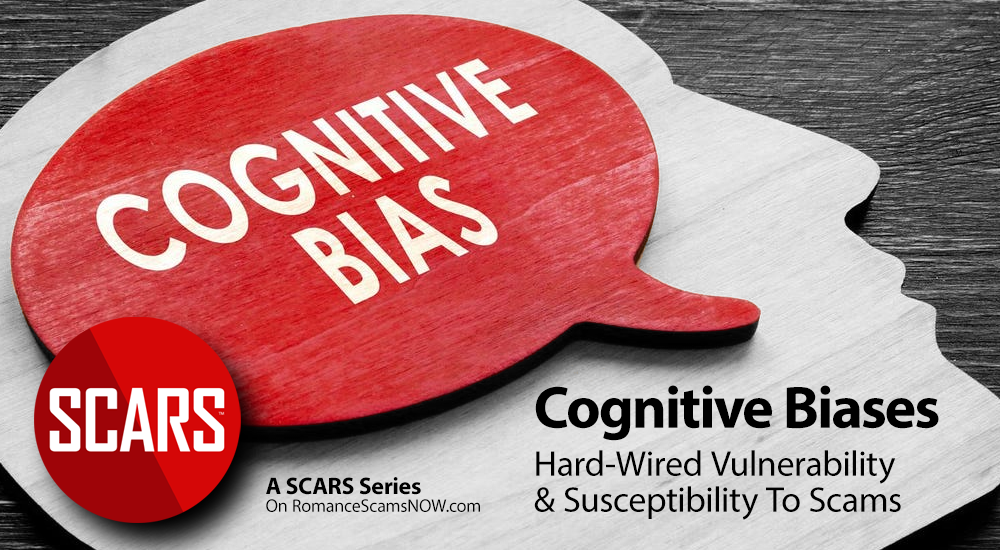



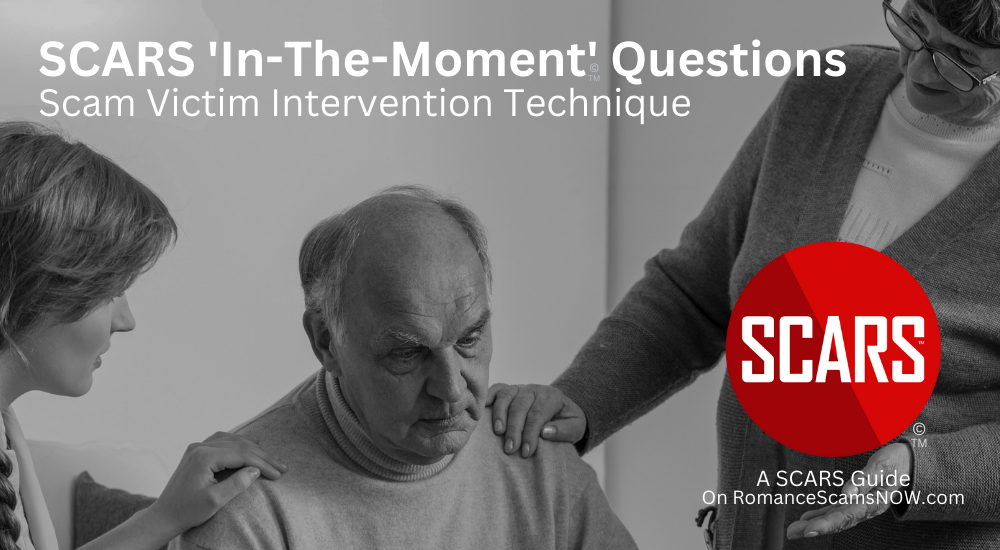




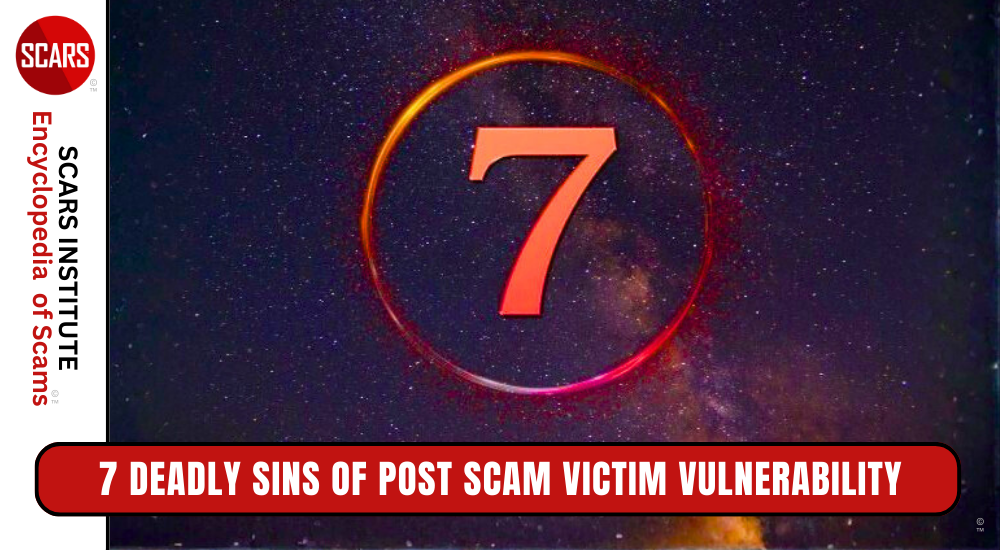
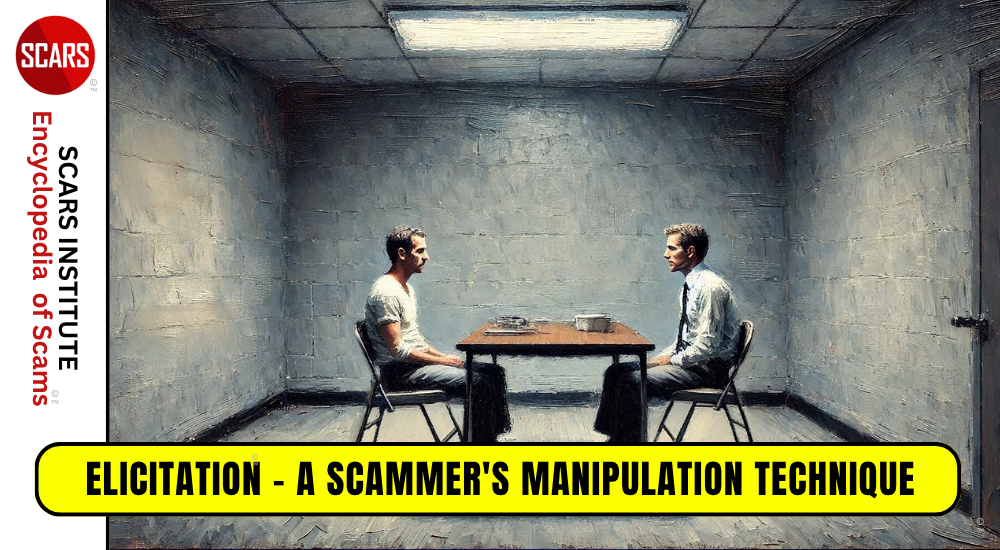

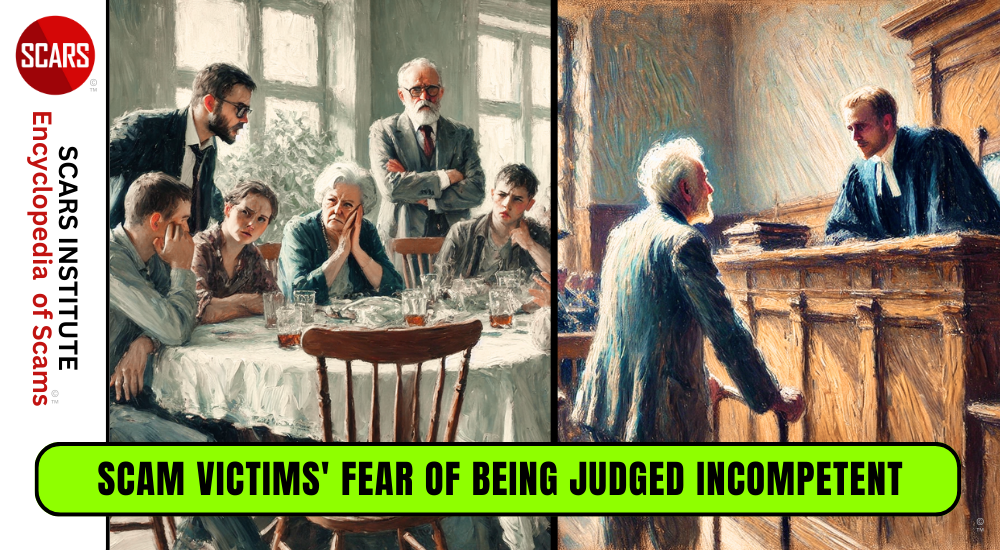
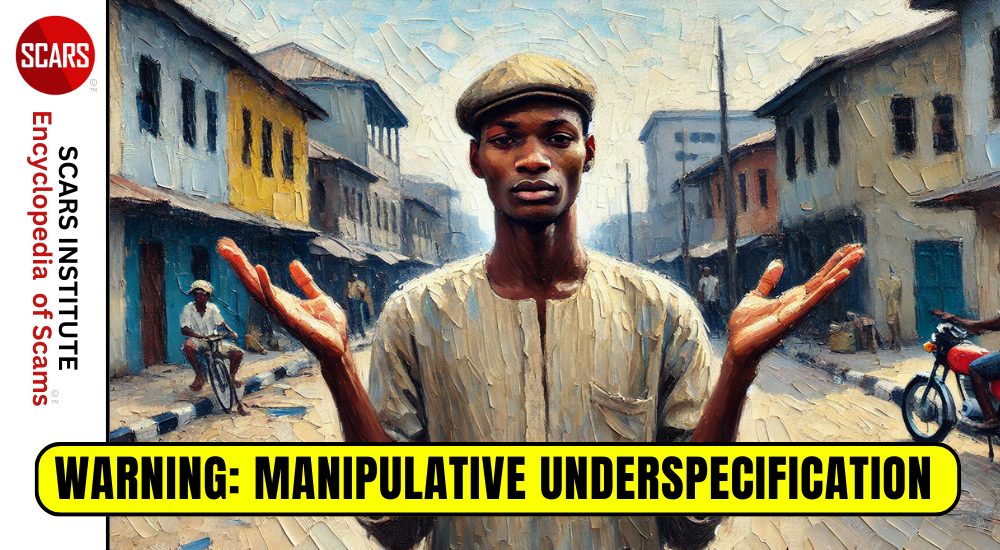




This is a great article that makes me realize without the Survivors School, I wouldn’t have the tools necessary to recognize the red flags I overlooked and would most definitely be scammed again. Thank you for helping me to better understand the many ways I mentally justified their tactics as anything other than intentional manipulation and control.
Thank you for this great article. I have experienced a small portion of retrospective framing in the last days of the crime and also in the days following ending my crime. It was so hard for my mind to accept the negative, destructive comments the criminals made to me. It hurt to think they thought so little of me. I know I wanted the relationship to go on but without the criminal aspects of it. But that was not possible because there was no relationship and there was not a part of the relationship that was not based on the criminality. Since those days I have not engaged in mental swordplay with myself considering to enhance the scammers credibility or believing that they were living a life of hell in bondage to their management team and that I was the only one who understood and could help.
Knowing what I know now through SCARS Institute Survivor school, I am able to walk back through my experiences with the fraudsters and and see the deceptions played out blow by blow. The perpetrators are the ones that should be a shame and guilty.
One valuable tool I have at my disposal to deal with retrospective bias is the chat history with my scammer. It all there. The deceit, the red flags, the love bombing and more. I had to revisit this during the reporting process, but have filled it away and hopefully never to be viewed again.